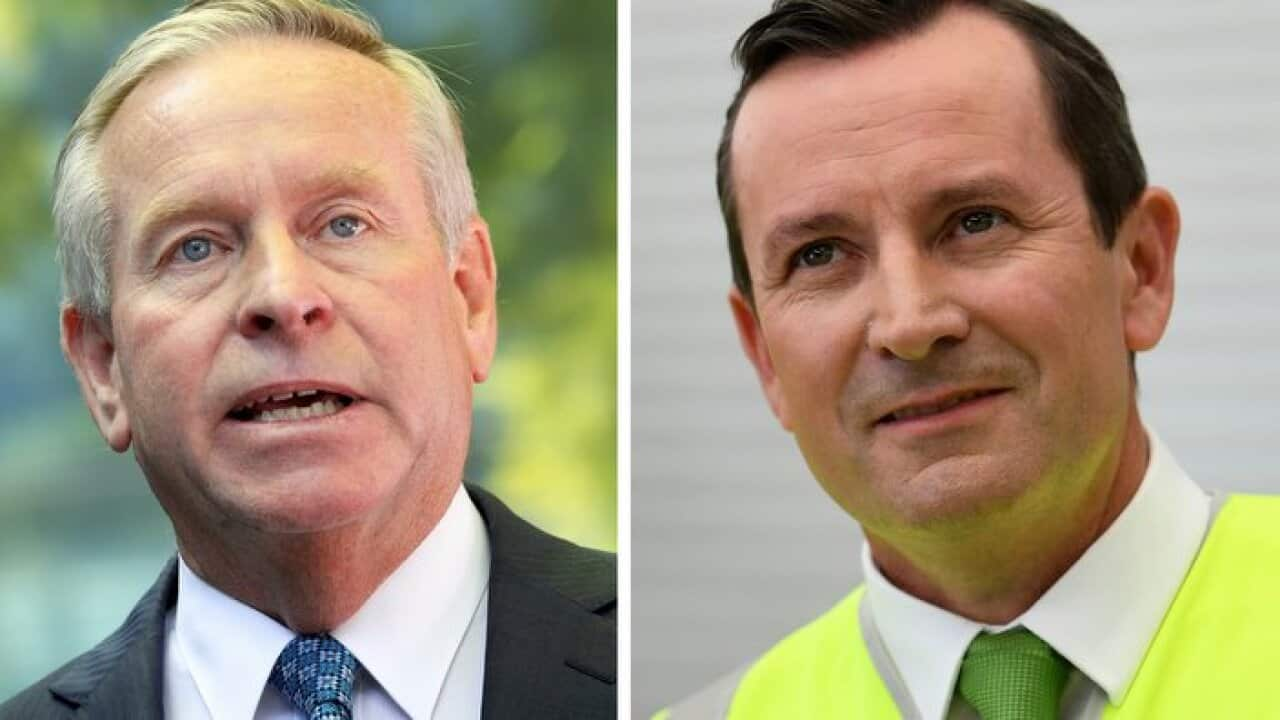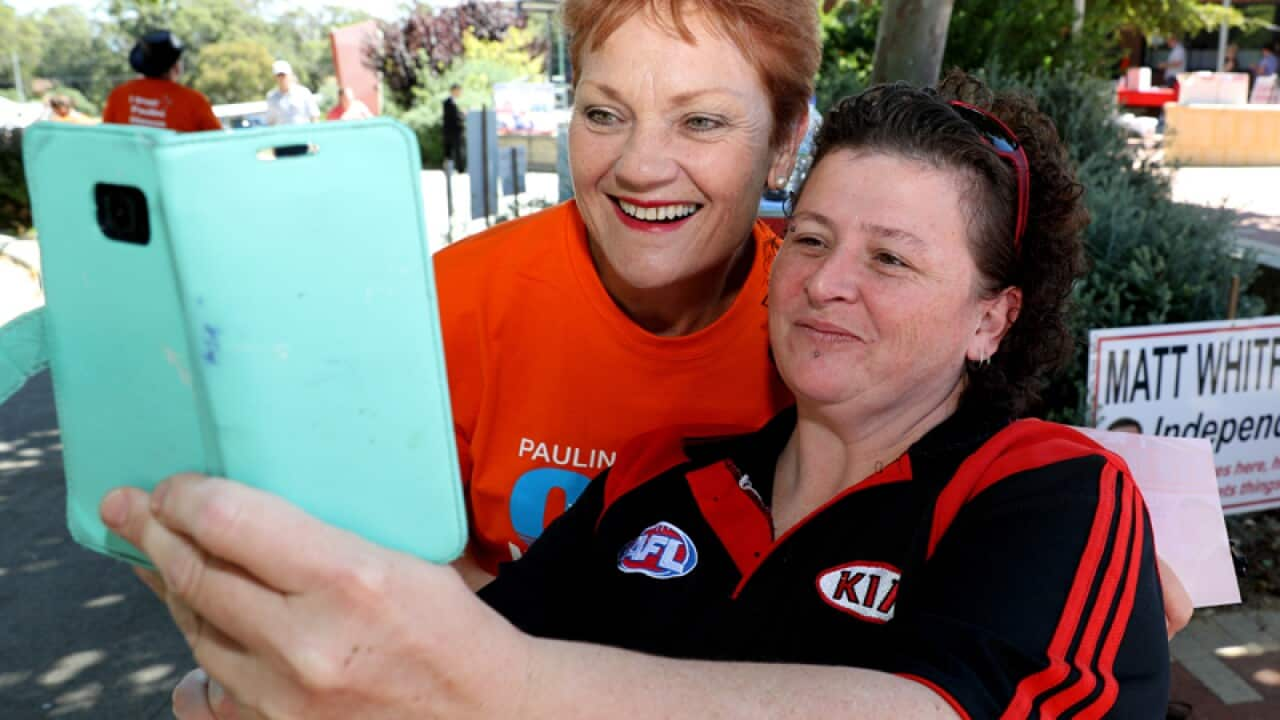There is a pub in the coal mining town of Collie that former Western Australia Liberal Premier Colin Barnett may want to avoid.
Judging by the way I was bailed up by locals desperate to express their anger at the state’s former leader, he would not enjoy his time propping up the Crown’s bar.
When SBS travelled to the Labor stronghold, there was one clear message: the Liberal party forgot – or didn’t care – about them.
The town, more than two hours south of Perth, is hurting. The coal mines are marginal and the workers are facing a 43 per cent pay cut. Some businesses have closed, real estate prices have fallen and youth unemployment is high.
Could that be placed at Colin Barnett’s feet? Yes, said the locals.
And it appeared that a lot of West Australians thought the same thing, with Labor recording an historic win at Saturday's election.
Colin Barnett concedes defeat
Debt solution?
But Labor hasn’t actually come up with a concrete plan to pay down the state’s record debt, approaching $40 billion.
Seems the electorate just wanted the people out who they believe caused the economic mess.
Labor promised more jobs: mandated apprenticeships on government projects, plans to lobby for more local manufacturing work from the Federal Government and reduction in foreign workers. And to boost tourism.
They also promised billions of dollars of new spending, which the Liberal party claimed wasn’t funded.
Labor wouldn’t let the state treasury look at its figures and asked some former public servants to sign-off on them, which they duly did.
The Liberal Party had a plan to pay down some of the debt it had created – sell off the poles and wires from the state-owned electricity grid. It would bring in $11 billion on paper, but it turned out the public really did not like the idea of selling half of Western Power.
The Nationals thought going after the state’s big miners, Rio Tinto and BHP, would be a good idea. Leader Brendon Grylls wanted to raise the minerals resources rent tax, which was set at 25 cents per tonne in the 1960s, to $5 a tonne.
Speak to enough fly-in/fly-out resource workers and they will tell you off-the-record that they see absolutely no problem with it. After all they say, ‘they can afford it’. Supposedly a few high-level resource executives also thought they could afford it.
So the Liberal and National partners (it’s questionable whether they will be partners again after the One Nation preference deal) offered big solutions to solve the debt problem. Labor pretty much did not.
Premier-elect Mark McGowan has pledged to go through the state’s books as soon as possible and wants to have a commission of inquiry.
“We need to find out where all the money has gone and what can be done to prevent losing so much money in the future,” he said.
WA Premier-elect Mark McGowan
It could be argued the state knows where the money went – big ticket items like a new stadium, city waterfront development, hospitals and servicing a population that was growing at 1500 per week at its height.
Mr McGowan said the debt was like a household mortgage and the public would understand that it would take a very long time to pay off. Your average household mortgage takes 30 years to pay off. McGowan’s Labor is going to have four years to make a sizeable dent in the state’s ‘mortgage’.
Please explain
If the Liberal Party was on the nose, why didn’t more votes go to One Nation, which had polled as high as 14 per cent of the primary leading into the election?
In reality, the party is looking at about five per cent of the primary vote.
A lot of voters I spoke with around Western Australian said One Nation’s leader, Pauline Hanson, called a spade a spade. They admired her as a woman who had stood up to the patriarchy and forged ahead.
But they just did not believe she really had the answers – she was just very good at pointing out the problems that everyone already knew.
The Liberal preference deal and her comments on vaccinations did not sit well.
“And then she goes on about immunisation,” said a former supporter in Collie. “There is no test of immunisation. All children should be immunised, no matter what.”
Hanson blames Barnett for shock result
One Nation will, naturally, not be happy. One party insider said they had been expecting big things from the regional city of Bunbury that was a strongly-held Liberal seat.
“I reckon 95 per cent of the people who have come up to me are going to vote for One Nation,” he said. “I’ve never seen anything like it.”
But by the time 70 per cent of the vote had been counted, Labor had more than 45 per cent of the primary vote – One Nation had just over eight per cent. The Liberal party with just under 39 per cent.
Former Liberal MPs say the One Nation preference deal cost them. The public did not like them getting in bed with the party.
So are they claiming that Liberal voters turned to Labor instead? Or to other left-leaning parties that would direct preferences to Labor?
The preferences will be analysed intensely by both sides – particularly the federal party branches.
But on the face of it, One Nation failed to fire, the Liberal party underestimated the anger, or fear, of the electorate, and Labor were there to pick up the “anyone-but-them” votes.
READ MORE

One Nation deals not down to me: PM
Barnett factor
Liberal members also blame Colin Barnett’s supposed unpopularity.
Mr Barnett is an intelligent, articulate person who has clearly been trying to position Western Australia, and Perth, on the world stage, particularly with China.
The political veteran of 27 years is a former economics lecturer and executive director of the state’s Chamber of Commerce and Industry.
He could appear arrogant with a ‘this-is-what’s-good-for-you attitude’.
That attitude did not wash with some sectors of the electorate who, rightly or wrongly, felt that their cost of living had gone up too much and it was Mr Barnett’s fault.
One of Mr McGowan’s constituents in his seat of Rockingam, in Perth’s south, was not so fazed about the cost of living or the state’s record debt.
“It’s only money," she told me with a shrug and smile on her face, the morning after her local member became Premier-elect.
The fallout from WA election result
And among all of this is a chance that one of the micro parties will get a seat in the legislative council. They had hoped to hold the balance of power at various points in potentially a tight upper house.
It does not appear, at this stage, that Labor will struggle to get legislation through the legislative council.
So, for example, the Fluoride Free party’s representative may find his or herself spending the next four years having very little say in the direction of the state. They also will not have any influence on the state’s drinking water.
“We’re not going to change our policies on fluoride because of an upper house member,” Mr McGowan told reporters as he struggled to keep a straight face.
After all, he has got a massive debt, jittery economy and a GST battle to keep him plenty busy for the next four years.
Insight: Minority Report. Nearly a quarter of Australians voted away from the major parties at the 2016 Federal Election. Why?



